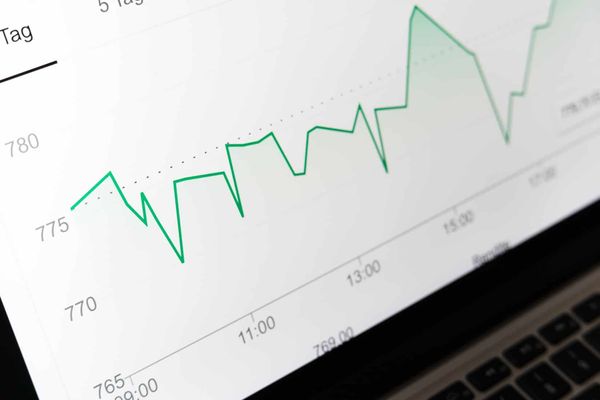
Covid-19 Chapter 11 Retail Bankruptcies and Restructures
Covid-19 Chapter 11 Retail Bankruptcies and Restructures
You can’t deny it, COVID-19 as turned the U.S. economy upside down. Most businesses have never been financially worse off, and many have had to file for bankruptcy protection. Although the pandemic has impacted nearly every industry, some have suffered more seriously than the rest, mainly industrial, energy, and hospitality, but most especially the retail sector.
Even though shops have reopened and life, as we knew it pre-pandemic, has somewhat been restored, retailers, that depend mainly on personal interaction, will still have to abide by certain restrictions within the predictable future. As a result, people will be spending less of their cash and are likely to make only essential or online purchases. Retailers will have to craft both short-term and long-term strategies to make sure that their businesses can survive.
If need be, these businesses may end up filing for protection under Chapter 11 of the U.S. Bankruptcy Code, allowing an embattled company to reorganize or liquidate as necessary.
Dodging Corporate Bankruptcy
Once an analyst or a company’s executives have assessed their business’s finances thoroughly, they will have to determine if they have sufficient liquidity to weather the crisis. They may be able to buy time by working out arrangements with rent, production costs, and other vital transactions if facing financial hardship.
Moreover, it’s essential to determine how the business’s current situation with the pandemic, compares with how it used to be before the health emergency. If the company was struggling before COVID-19, they would probably continue to struggle when the economy improves. Not only will the business want to consider bankruptcy as an option, but also a major rebranding and marketing effort to help them survive post-pandemic.
In America, the CARES (Coronavirus Aid, Relief, and Economic Security) Act offers loans and grants to specific types of businesses and industries, mostly intended for smaller companies. If awarded these loans and grants, a business could very well make it out relatively unscathed. Otherwise, bankruptcy could be the sole option available.
Understanding Corporate Bankruptcy
A business’s financial state and its chances of survival are the primary considerations when executives decide to seek Chapter 11 protection during economic turbulence. Liquidation is often the best course of action for a retailer that plans to dispose of all its assets and halt operations permanently to avoid higher losses.
For businesses that would like to restructure their debt and keep operating, they will have to file for Chapter 11. Chapter 11 offers businesses an opportunity to salvage themselves via reorganization. It essentially allows the company to target the areas that are costing the company and preserve just the parts of it that make it productive. For instance, a major retailer with 300 stores nationwide may only keep open its 100 top-performing locations. This cuts down on rent, purchasing costs, and, unfortunately, salaries.
In normal circumstances, Chapter 11 can result in a healthier, more efficient company. Navigating COVID territory may prove a little trickier, though.
Ongoing and Foreseeable Retail Bankruptcies
Several experts have warned of a surge in bankruptcy filings towards the end of 2020. In the retail sector, many businesses are already considering filing, especially if they see their sales not meeting the cost of the business. Even so, many retailers have already filed for bankruptcy. Records say at least 560 new filings have been made in April alone. This is a 26% increase from April 2019.
Mainstream Brands
The pandemic has clearly hit retailers, but most especially those that were experiencing issues before the pandemic, such as JC Penney, Centric Brands, and J. Crew. All of these companies have sought protection under Chapter 11.
Other known retailers like Lucky Brand, GNC, and Sur La Table are also facing COVID-related bankruptcy. We may consider department stores like Lord & Taylor and Men’s Warehouse untouchable, but the fact is, no retailer is the special one. Both of these retail giants filed for bankruptcy early-August.
Small Businesses
Brick and mortar shops have suffered considerably, and smaller retailers are more vulnerable, considering their larger counterparts often have more resources and brand recall. These smaller businesses may be forced to close shop for good and liquidate.
Online Stores
Many online merchants will be fine — and even thrive — but may still face financial losses due to supply chain interruption, decreased credit ratings, and customers who have not been buying as much as before. In this situation, bankruptcy may also prove to be a wise option.
Retailers Already Facing Bankruptcy
Yet another important issue to look into is the impact on retailers who have already filed for bankruptcy. Several bankruptcy proceedings have been halted because of COVID-19.
Modell’s, for example, filed for Chapter 11 bankruptcy back in March before the pandemic was declared. Still, the courts have temporarily halted proceedings to give the estate time to recover more resources. The judge may use unfamiliar bankruptcy laws and the challenges brought on by the pandemic as reasons to freeze the case. Meanwhile, the company will have to keep paying rent.
Conclusion
COVID-19 has undoubtedly disturbed the global economy, and its impact will not be short-lived. As COVID-19 cases ease up in the future, more business will resume normal operations. However, with consumers shaken by unemployment and fears of infection, it could take years before the economy will bounce back fully.
Retailers must, therefore, be proactive in assessing their chances of survival. When prospects are grim, businesses need to explore options like Chapter 11 bankruptcy when necessary.
What’s the saying? Money comes and goes. Isn’t it the truth. As unfortunate and economically terrifying as Chapter 11 may sound, it doesn’t always mean a business is done for, it simply means it is facing terrible hardship. So don’t say goodbye just yet to those retailers you love. They can always bounce back from the pandemic if they make the right moves.


